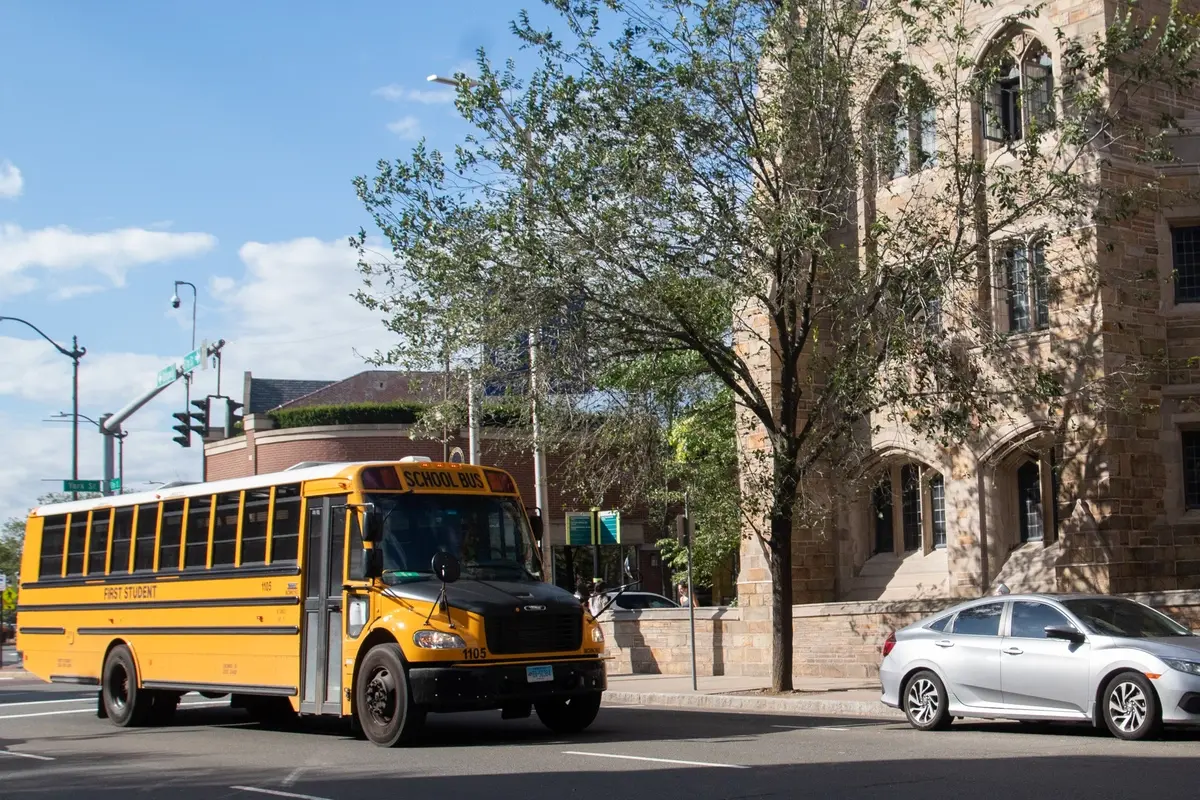New Haven Public Schools face teacher shortages amid contract negotiations
Teachers say they’ve been “stretched to points of snapping”.

Zoe Berg, Senior Photographer
In the wake of the COVID-19 pandemic, Marta Tamulevich’s fourth grade classroom saw a spate of outbursts and fighting that escalated into school-wide lockdowns as students reacclimated to in-person instruction.
Tamulevich has been teaching at Conte West Hills Magnet School in New Haven since 2016. She has had to drastically adjust her teaching practices to adapt to parent expectations and staffing shortages, and she said that she is navigating these changes largely unsupported.
“I felt like I was drowning,” she said. “Teachers were not taught how to cope with this.”
These experiences are not unique to Tamulevich’s classroom. New Haven public schools currently face a shortage of 81 teachers across the 44 campuses, placing additional stress and responsibilities on the teachers that remain in the district. Earlier this month, Wilbur Cross High School Principal John Tarka, announced his resignation just five weeks into the academic year.
At an Oct. 11 school board meeting, teachers and staff shared their experiences of the teacher shortage during the public comment period. They cited the higher wages, special education caseload cap, and other protections offered by surrounding districts as common reasons that teachers transfer out of New Haven. Many also pointed to a nationwide lack of respect for the teaching profession as a source of discouragement.
“An exhausted teacher cannot happy-face their way out of exhaustion,” said Rebecca Mickelson, who teaches early childhood art. “Our human limits are being stretched to points of snapping.”
Darnell Goldson, former president and current member of the New Haven Board of Education, shared that the district’s teacher shortage is causing schools to make difficult decisions on where staff is placed.
Some teachers, he said, have been told in the weeks before the school year began that they would be uprooted from their previous, long-term classroom locations. Others have been mandated to teach entirely different grades with vastly different curricula; one teacher was moved from kindergarten to sixth grade, forcing them to abandon all former lesson plans.
Some classes, particularly those in the Advanced Placement curriculum, have been eliminated entirely from schools due to a lack of certified staff. Goldson said this removal causes an increase in class size and limits the variety of subjects available to students.
“This has been happening for the last couple of years,” Goldson said. “The district has been playing this game of musical chairs because of shortages. At this point, there’s no real incentive for teachers to stay.”
These staffing issues are at the forefront of current contract negotiations between the Board of Education and the New Haven Federation of Teachers, the local teachers’ union. After conducting a survey of its members and establishing working groups, the union drafted proposals fighting for certified instructors in every classroom, adequate support staff, robust raises for teachers and affordable health insurance.
New Haven Public Schools President Yesenia Rivera wrote in an email to the News that the district has been “recruiting teachers aggressively” and offering a retention bonus for current staff.
Rivera added that they are advocating for the state to provide more funding to urban school districts like New Haven to support competitive wages for teachers. The next negotiations meeting is scheduled for Tuesday, Oct. 18.
Alongside her commitment to improving working conditions through these negotiations, New Haven Federation of Teachers president Leslie Blatteau said she strives to recognize and highlight the many positive features of New Haven schools. She pointed the News to new outdoor education programs, cultural celebrations and increased college and career mentorships as examples of success.
“There are beautiful things going on in our schools. There are innovative things,” Blatteau said. “And when you hold that up alongside the staff shortages, it’s even more extraordinary.”
51 percent of funding for New Haven Public Schools comes from state and federal grants.







